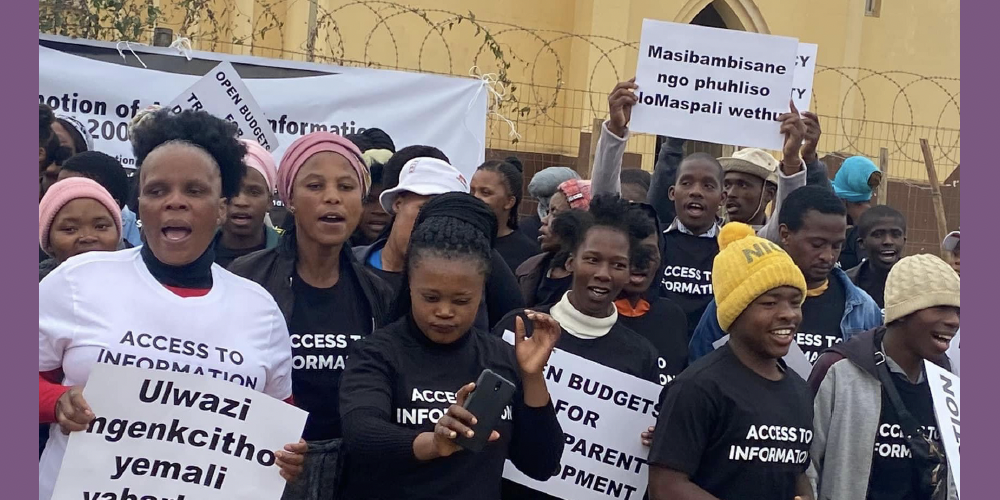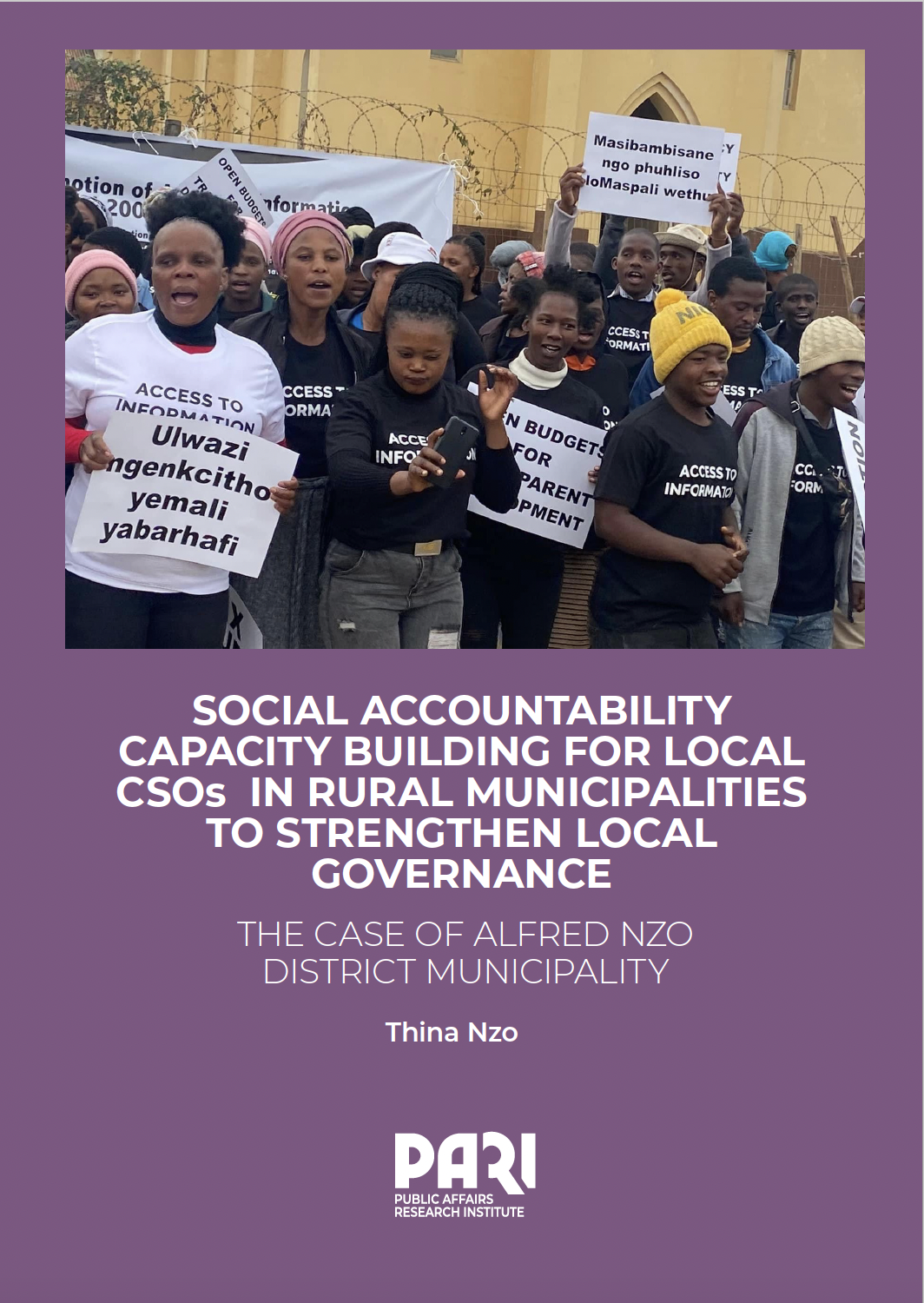SOCIAL ACCOUNTABILITY CAPACITY BUILDING FOR LOCAL CSOs IN RURAL MUNICIPALITIES TO STRENGTHEN LOCAL GOVERNANCE:
THE CASE OF ALFRED NZO DISTRICT MUNICIPALITY
ABSTRACT
The research provides an insight into the way in which social accountability capacity-building activities were implemented by Oxfam South Africa in three rural local municipalities at the Alfred Nzo District Municipality, with the objective of promoting and enabling rural-based informal community-based organisations to use social accountability strategies to hold local government accountable for the non-delivery of services. Using participatory research methods, this research provides an insider-outsider account into the strategies that assisted informal civil society organisations to demand accountability from the municipality. It also demonstrates the difficulties in applying methods of bringing duty bearers and civil society together in an attempt to bridge tensions between the state and society in participatory governance ‘invented’ spaces. While it is assumed that social accountability initiatives should remain politically neutral and civil society organisations as ‘non-state’ actors are best positioned to advance such initiatives due to their insulation from patronage politics, in reality, informal civil society organisations pursuing social accountability mechanisms end up being caught in a web of clientelistic relations. This is largely due to the influence of strong partisan local elite structures that civil society members are connected to.
The case of the Mphuthumi Mafumbatha Stadium social audit, presented in this research, offers a compelling insight into the multifaceted struggle that informal civil society grapples with in disentangling itself from local politics when attempting to implement social accountability in rural communities. Informal local civil society organisations located in rural municipalities are mostly vulnerable to the prevalence of patronage practices that have been embedded into the political and socioeconomic life of poorer communities, who are mostly dependent on the spoils systems to survive. Therefore, this research illustrates how the effectiveness of social accountability initiatives can be impacted by local patronage structures of the local state, whereby the drive to exercise social accountability is undermined by political networks of patronage and clientelism. Instead of carrying out independent inquiries into the performance public officials’ and contractors, there is a likelihood of having some of their members being subordinated to engage in clientelistic exchange to protect the public officials and contractors, while having to negotiate strategies that can help them to hold local government institutions to account and resist ‘capture’ from the local political elite.



